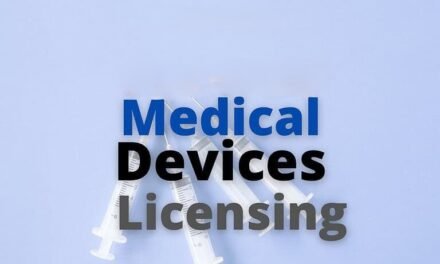
What are the common challenges in marketing medical devices in Tamil Nadu?

Marketing medical devices in Tamil Nadu comes with its own set of challenges, driven by regulatory complexities, market competition, and diverse customer needs. Here’s a detailed look at the common challenges faced by companies:
1. Regulatory and Compliance Challenges:
- Strict Regulations:
- Medical devices must adhere to stringent Indian regulations under the Medical Devices Rules, 2017, governed by the Central Drugs Standard Control Organization (CDSCO).
- Delayed Approvals:
- Obtaining licenses and certifications, such as ISO 13485, CE marking, or FDA approvals, can be time-consuming and expensive.
- Regional Variations:
- Navigating different state-level policies and taxation structures adds complexity.
2. High Competition:
- Local vs. Global Players:
- Tamil Nadu-based companies compete with both domestic and international manufacturers, particularly in high-tech and cost-sensitive segments.
- Brand Recognition:
- Established global brands often dominate the market, making it challenging for local companies to build trust and recognition.
3. Price Sensitivity:
- Cost Constraints:
- Hospitals and clinics, especially in rural areas, often have limited budgets, making affordability a critical factor.
- Balancing Cost and Quality:
- Manufacturers must deliver high-quality devices at competitive prices while managing production costs.
4. Diverse Customer Needs:
- Varied Market Segments:
- Catering to both premium urban hospitals and cost-sensitive rural clinics requires differentiated marketing strategies.
- Limited Awareness:
- In some regions, healthcare providers may have limited knowledge of advanced medical devices, necessitating educational marketing.
5. Distribution and Logistics:
- Supply Chain Complexities:
- Ensuring timely delivery of devices to remote locations can be challenging due to inadequate infrastructure.
- Distributor Dependence:
- Companies often rely on third-party distributors, which can lead to inconsistent branding and customer service.
6. Technological Barriers:
- Digital Adoption:
- While digital marketing is growing, not all healthcare providers are tech-savvy, limiting the effectiveness of online campaigns.
- Integration Challenges:
- Some hospitals may lack the infrastructure to adopt advanced medical technologies, reducing market potential.
7. Cultural and Language Barriers:
- Localized Communication:
- Tamil Nadu has a diverse population, and marketing materials must often be tailored to regional languages and cultural preferences.
- Reluctance to Change:
- Some healthcare providers may prefer familiar brands or technologies over new entrants.
8. Ethical and Legal Concerns:
- Marketing Ethics:
- Overpromising device capabilities can lead to credibility issues and legal challenges.
- Anti-Kickback Regulations:
- Companies must navigate rules against offering incentives to healthcare providers for product endorsements.
9. Educational Gaps:
- Training Needs:
- Healthcare professionals may require training to understand and use complex medical devices, which can delay adoption.
- Awareness Campaigns:
- Building awareness about the benefits of new technologies requires significant effort and investment.
10. Post-Sales Challenges:
- Customer Support:
- Providing reliable after-sales service, including maintenance and technical support, is crucial but resource-intensive.
- Warranty and Repairs:
- Addressing warranty claims or device malfunctions quickly is critical to maintaining trust.
11. Limited Access to Funding:
- Marketing Budgets:
- Smaller manufacturers may lack the financial resources for large-scale marketing campaigns or participation in trade shows.
- High Marketing Costs:
- Running digital and offline campaigns simultaneously can strain budgets.
12. Global Market Challenges:
- Export Barriers:
- Companies aiming to export face challenges like international regulatory compliance and currency fluctuations.
- Cultural Nuances:
- Adapting marketing strategies for foreign markets requires in-depth understanding and resources.
Strategies to Overcome Challenges:
- Leverage Digital Platforms:
- Use cost-effective digital marketing tools to reach target audiences and build brand recognition.
- Educational Marketing:
- Conduct workshops, webinars, and training programs to raise awareness among healthcare professionals.
- Government Incentives:
- Take advantage of state and central government schemes like the PLI Scheme and Medical Device Parks.
- Localized Marketing:
- Customize communication strategies to cater to regional preferences and language needs.
- Strengthen Partnerships:
- Collaborate with distributors, hospitals, and NGOs to enhance reach and trust.
Tamil Nadu’s medical device manufacturers face several challenges in marketing their products, from regulatory hurdles to market competition. However, by adopting innovative strategies, leveraging government support, and focusing on quality and affordability, these companies can effectively navigate these obstacles and establish a strong presence in both domestic and international markets.



























